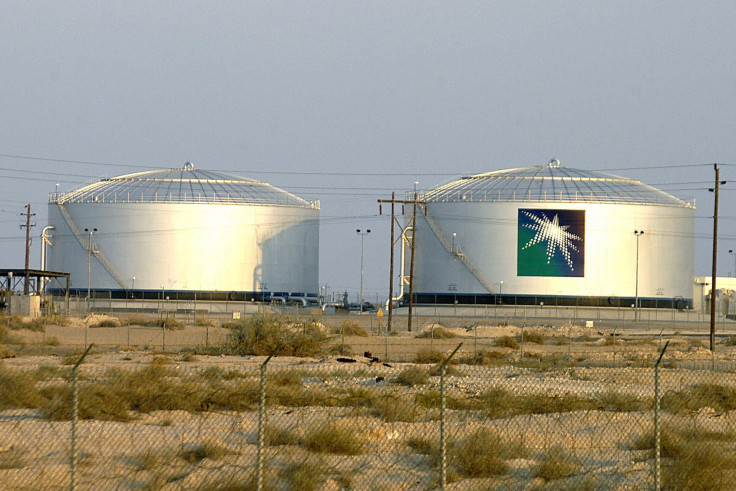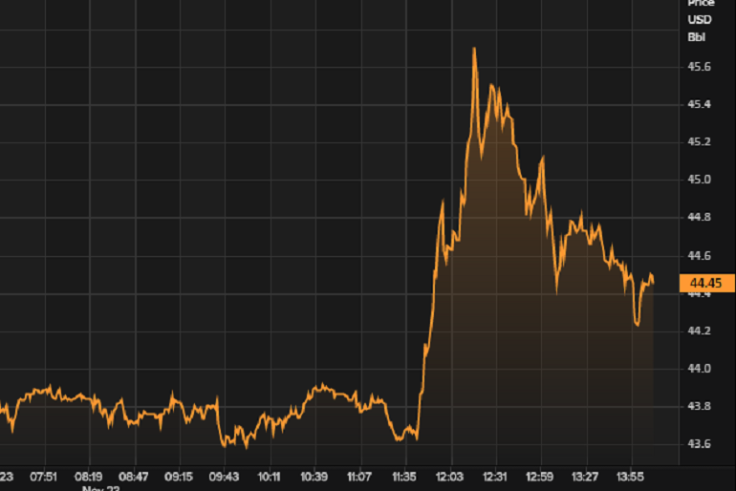Low Oil Prices: Saudi Arabia Says It's Ready To Help Stabilize Global Crude Markets But Stops Short Of Committing To Production Cuts

Oil prices jumped Monday after Saudi Arabian cabinet ministers said the country was willing to work with members outside of OPEC to stabilize global oil markets. But prices quickly erased those gains as traders looked at commodity markets, which were battered Monday as the U.S. dollar hit a seven-month high.
"The council [of ministers]...stressed the kingdom's role in [achieving] the stability of the oil market and its continuous readiness and efforts to cooperate with all OPEC and non-OPEC countries to maintain the stability of the market and prices," the cabinet said following its meeting in a statement that was released through the official Saudi Press Agency.

The world’s largest holder of proved crude oil reserves has been keeping its oil output high in an effort to maintain global market share against a U.S. fracking boom that’s disrupted oil prices in recent years. Output from the 12-member OPEC bloc fell in October, led by Saudi Arabia’s drop in demand from its domestic power plants and refineries. Saudi oil exports continued to rise.
"Saudi Arabia hasn't said they won't cut, but that doesn't mean they are going to increase production either -- it’s very loose news," SEB bank analyst Bjarne Schieldrop told Reuters.
Oil futures were hovering at a 2 1/2-month low Monday morning in New York after a brief uptick following the Saudi remarks. West Texas Intermediate crude oil, the U.S. benchmark for oil prices, dropped 1.43 percent to $41.30 per barrel for January delivery on the New York Mercantile Exchange. Brent crude, the global benchmark for oil prices, fell 0.34 percent to $44.51 for January delivery on the London ICE Futures Exchange.
© Copyright IBTimes 2025. All rights reserved.





















